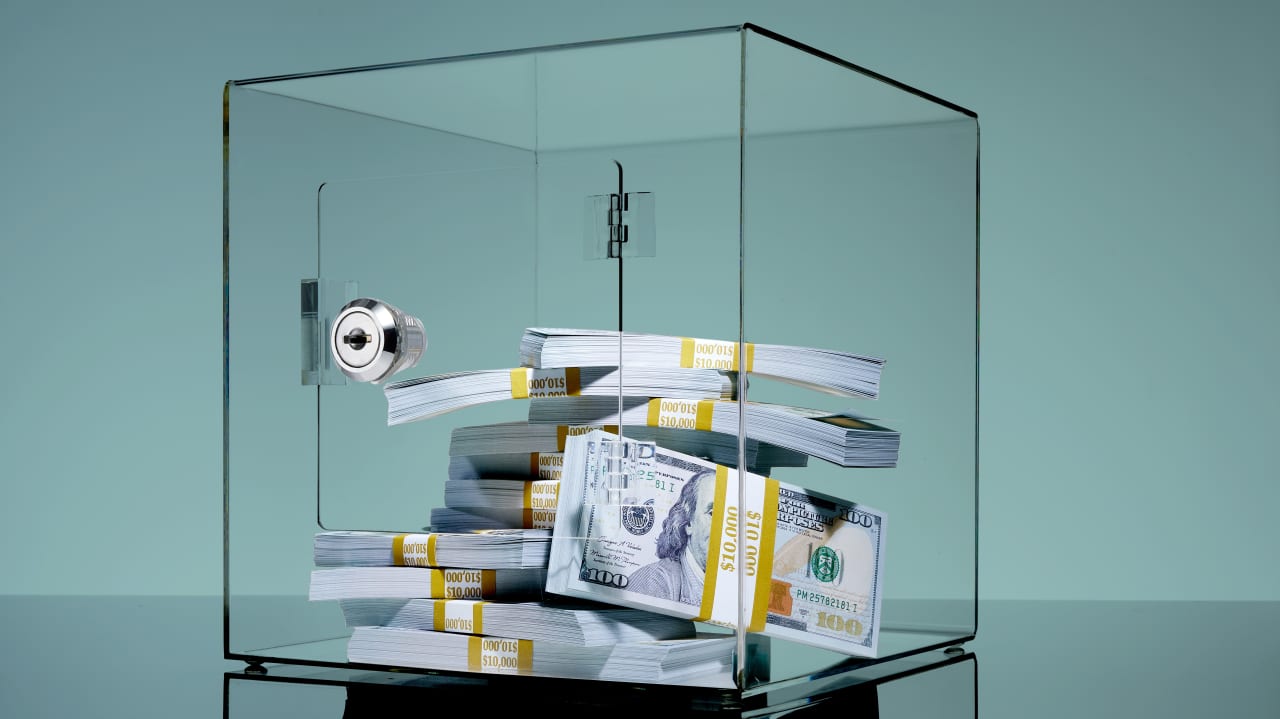Updated ET
0:00
ADVERTISEMENT
4:45

Playing
0:10 / 5:33
Lynn Hogan and her husband jokingly call themselves “the turtles” after methodically investing for decades. In the current race against inflation, which has made trips more expensive and $200 grocery bills not uncommon, the mostly retired educators are among those keeping pace.
Returns from slow-and-steady investments, including stock dividends, have allowed the couple outside of Decatur, Ala., to help put one of their daughters through veterinary school. “To them,” Hogan said of her adult children, “prices matter a whole lot more than to us.”
Inflation, for Hogan, “is not a heart-wrenching thing,” she said.
Growing investment income and household wealth have joined near-full employment and rising wages to keep millions of Americans such as the Hogans spending their way through price hikes. The economy’s charge through higher interest rates is putting unprecedented sums into consumers’ pockets, pushing U.S. asset values to records and helping many high earners avoid the withering effects of inflation.
Americans in the first quarter earned about $3.7 trillion from interest and dividends at a seasonally adjusted annual rate, according to the Commerce Department, up roughly $770 billion from four years earlier. In the last quarter of 2023, wealth held in stocks, real estate and other assets such as pensions reached the highest level ever observed by the Federal Reserve.
The historic gains aren’t without a potential downside. Americans’ resulting ability to shell out more for goods and services “is going to make it harder for the Federal Reserve to reach their inflation target,” said James Marple, a senior economist at TD Bank.
Federal data suggest Americans’ wage and wealth growth in recent years spanned every income bracket. In sheer dollar terms, white people, the rich, the college-educated and baby boomers have bagged disproportionate wealth gains through ownership of assets such as homes—often locked in with low-rate mortgages—and stocks.

Many investors expected higher rates to weigh down companies’ share prices by eroding the present value Wall Street assigns to future corporate profits.
Instead, hype around artificial intelligence has helped push major stock indexes near records by boosting shares in tech companies, chip makers and even utilities. While the S&P 500 has ticked slightly lower over the past week, Wall Street is still betting on rate cuts this year that could propel the next leg higher.
“That complicates things,” TD Bank’s Marple said.
Economists disagree over the extent to which the so-called wealth effect from rising asset prices encourages consumers to spend, as well as how long that impact might propel economic activity. But in an era of higher bond yields, many Americans’ investments are also turning out cold hard cash that can flow back into the economy via restaurants, hotels and stores.
Victor Hernandez, a tech sales professional in Southern California, has increasingly snapped up Treasurys and corporate debt in recent months to lock in such safe returns. Fixed income now makes up about one-third of his portfolio.
Higher prices caused the 55-year-old and his wife to slow their efforts to buy a new car and delay a potential project to improve their backyard patio and garden. Still, the couple didn’t hesitate to buy one of their sons a new set of tires recently. They are planning trips around the U.S. and to Spain. Family get-togethers have included catered meals.
Taken together, recent stock gains and bond income have put Hernandez in a better position to achieve his goals of retiring early and helping his two boys buy future homes.
“I’m not going to die and take [the money] with me,” he said.
The income flowing to Americans such as Hernandez has sparked debate among some analysts as to whether higher interest rates might actually be stimulating the economy.

Washington has pumped out trillions of dollars in recent years for pandemic relief, clean-energy projects and more, selling Treasurys to finance soaring budget deficits. The snowballing debt, coupled with the highest rates in more than two decades, pushed government interest expenses to a seasonally adjusted annual rate of nearly $1.1 trillion, according to first-quarter figures from the Commerce Department.
That is income for cash-rich companies or Americans who park savings in money-market funds, where 5% annual returns can turn into a surprise five figures.
For Delores McKinley, a retired accountant in Fort Lauderdale, Fla., the low-risk investments “kind of sit there and then, when I do my taxes, I say, ‘Oh, I made all this money.’ ”
Andy Constan, chief executive of the investment consulting firm Damped Spring Advisors, said the higher government-bond payouts likely boosted Americans’ overall spending. But with the Fed signaling additional rate hikes are unlikely, the growth in that income is expected to slow sharply.
Meanwhile, higher borrowing costs are hitting more small businesses that need loans, prospective home buyers who seek mortgages and lower-income Americans who pile up credit-card debt.
“At this stage, it’s much farther tilted to higher interest rates hurting the economy,” Constan said.
Big savers such as Jane Bertani are still holding cash in case the Fed’s inflation fight starts biting in earnest. “If the market falls, you need to have something as a backup,” said the retired occupational therapist from Minnetonka, Minn.
For now, Bertani and her husband, a retired dentist, are still playing the market through individual accounts geared toward specific expenses, such as taxes and travel. The pair, who occasionally splurge on $20 Wagyu burgers at a nearby restaurant, recently went over their monthly food budget—a spending result that Bertani attributes to inflation.
A separate investment account for miscellaneous expenses had them covered. “When and if we need money, we can go to that account,” Bertani said. “I realize that most people don’t have the time or resources to do that. Fortunately, we do.”

Write to David Uberti at david.uberti@wsj.com
Inflation and the Economy
Analysis from The Wall Street Journal, selected by the editors
Copyright ©2024 Dow Jones & Company, Inc. All Rights Reserved. 87990cbe856818d5eddac44c7b1cdeb8
What to Read Next
17 hours ago
Videos
Buy Side from WSJ
Expert recommendations on products and services, independent from The Wall Street Journal newsroom.

















